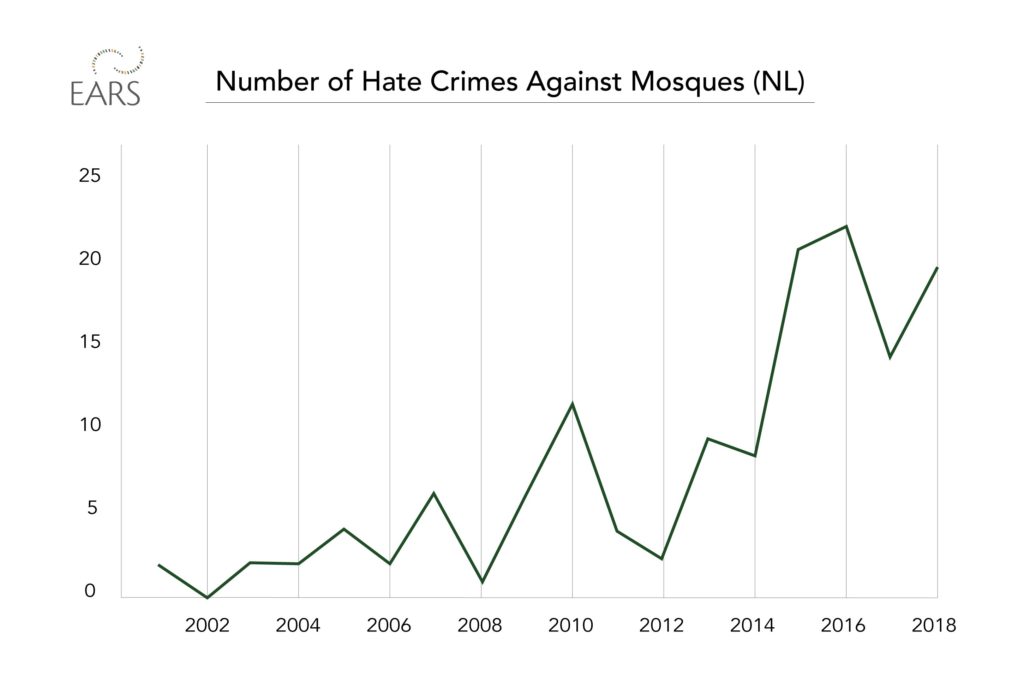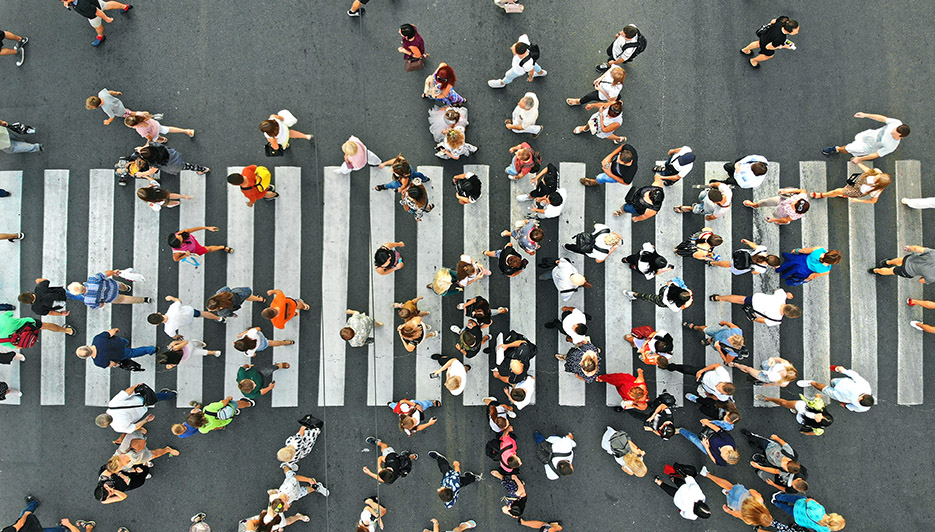Violence against Muslims, a growing concern
Violence against Muslims, a growing concern
“Mosque in Central Greece pelted with stones”,[1] “Norway mosque attacker gets 21-year sentence”,[2] and “London Central Mosque stabbing: Man is arrested”.[3] These are just a selection of European headlines from the past few months. The message is clear: violence against mosques and Muslims occurs often and happens everywhere. Examples range from minor inconveniences – a cable being cut, resulting in the failure of the call to prayer[4] – to major attacks, such as the attack on a Norwegian mosque in August 2019.[5]
Violence against Muslims: facts and figures
Statistics from across Europe show that violence against Muslims and attacks on mosques are on the rise. For example, in the United Kingdom, Muslims are twelve times more likely to become victims of hate crimes than Christians. Moreover, the UK experienced a 593% increase in anti-Muslim crimes in the week following the deadly attack on a mosque in Christchurch, New Zealand.[6] In France, there was also a major increase in the number of hate crimes recorded after the Charlie Hebdo attacks in 2015.[7]

Politics, the internet, and laws facilitate hate crimes
Specific causes for the increase in hate crimes against Muslims and mosques are hard to define. However, several European trends play an important role.
First, more and more far-right political parties, who often express anti-Islamic opinions, are gaining influence. Ranging from Thierry Baudet’s Forum for Democracy in the Netherlands to Marine Le Pen’s Rassemblement National in France, these parties have been growing in popularity.[9] [10] The fact that many of these parties remain in opposition, rather than in government, has allowed them to be even more explicit in their opinions on Muslims and Islam.[11] In particular, far-right leaders have tried to exploit Islamic minorities, both in terms of established communities as well as more recent migrants, to gain political influence through populist and aggressive policies. For example, politician Geert Wilders asked his audience in 2014 whether they wanted “more or fewer Moroccans” in the country. When the crowd yelled “fewer, fewer,” Wilders responded: “we will take care of that.”[12] More recently, politician Thierry Baudet’s party Forum for Democracy argued that “the Islam dominating public space? That is really undesirable.”[13]
Second, the availability of Islamophobic groups on the internet facilitates the dissemination of hate. Right-wing groups often emerge online. Moreover, media campaigns and social media advertisements are known for spreading Islamophobic statements.[14] Research has found that media exposure to Muslim-related issues impacts attitudes towards Islam and Muslims.[15]
Third, laws and regulations may enable violence or hate crimes. For example, the Austrian government implemented a ban on face veils in 2017[16] and the Netherlands banned burkas in 2019.[17] The latter country also proposed a ban on the financing of mosques from abroad. Romania, Finland, and Latvia proposed similar laws, and in Belgium, Muslim halal slaughter was limited. The Swiss political party SVP attempted to ban the full-face veil. In Norway, the minister for immigration and integration suggested a ban on hijabs at elementary schools and on the face veil in schools and higher education institutions.[18]
Despite the increase in hate crimes against Muslims and mosques, only 22 mosques in the United Kingdom received funding for hate crime security in 2018, a total of £375,413. 24 others applied, but were not granted any security. In contrast, the Jewish community was granted £14 million, even though 52% of all hate crime was aimed at Muslims.[19]
Calls for better protection
Although the specific experiences do vary, there has been a clear call from Muslim communities across Europe for better protection of their holy places. In the United Kingdom, representatives of the Islamic community have requested greater funds for the protection of mosques. They are keen to stress that this should not be done at the expense or loss of funding for the Jewish community. The representatives instead claim that all communities that are at risk should receive greater funding to protect their communities and places of worship.[20] Likewise, in the Netherlands, where recent cases of violence have included a hateful banner being hung in front of a mosque, there have been calls for further protection.[21] [22] In Germany, community leaders have also called for the government to do more to ensure that all faiths can be practiced without participants being at risk.[23] However, a focus on protection does not suffice. In order to enable Muslims to safely practice their religion, the problems should be addressed at their roots.
Do you want to stay updated on the latest news on religion & society? Create an account on the EARS Dashboard and receive free weekly updates.
[1] Mosque In Central Greece Pelted With Stones
[2] Norway Mosque Attacker Gets 21-Year Sentence
[3] London Central Mosque stabbing: Man is arrested
[4] Kabel doorgeknipt, gebedsoproep Blauwe Moskee Amsterdam mislukt
[5] Schutter Noorse moskee bekent aanval | Buitenland
[6]Anti-Muslim hate crimes soar in UK after Christchurch shootings
[7] A Comparative Analysis of European Islamophobia: France, UK, Germany, Netherlands and Sweden
[8]Haat-uitingen gericht tegen moskeeën (update januari 2019)
[9] Zo ziet het Nederland van Forum voor Democratie eruit
[10] The increase in popularity of Marine Le Pen’s Front National
[11]Justice officials pressed for Wilders to be prosecuted for ‘fewer Moroccans’ speech
[12]Justice officials pressed for Wilders to be prosecuted for ‘fewer Moroccans’ speech
[13]Forum voor Democratie voert de islamkritiek op: ‘Écht onwenselijk dat islam de publieke ruimte zou domineren!’
[14] European Islamophobia Report
[15] The rise of anti-Muslim prejudice: Media and Islamophobia in Europe and the United States
[16] European Islamophobia Report
[17] Waar geldt het boerka-verbod?
[18] European Islamophobia Report
[19] Just 22 mosques given funding for hate crime security last year
[20] Just 22 mosques given funding for hate crime security last year
[21]Islamorganisaties willen meer bescherming na ‘aanslag’ Pegida
[22] Moslimorganisaties willen betere bescherming tegen haat en discriminatie
[23] Germany’s Muslims demand better protection amid increased threats






